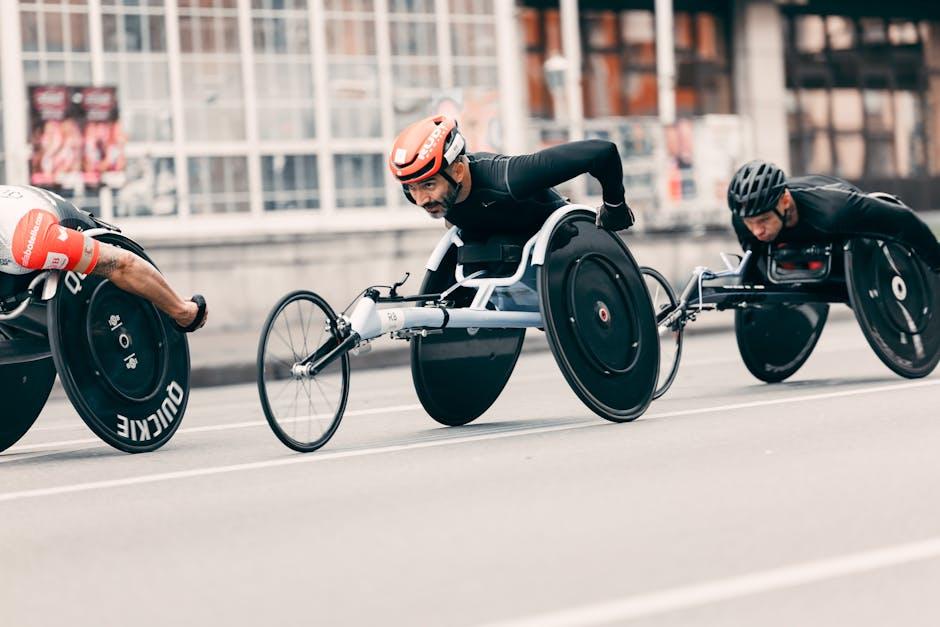In the world of endurance sports and intense physical activity, athletes and fitness enthusiasts alike are constantly seeking the secret ingredient that will enhance their performance and speed up recovery. While various supplements and training regimes often take the spotlight, one essential element quietly plays a crucial role from behind the scenes: iron. This unassuming mineral, often overshadowed by its more glamorous counterparts, is a powerhouse in its own right, acting as a vital catalyst in the body’s quest for endurance and efficient recovery. As we delve into the intricate relationship between iron and physical performance, we uncover how this elemental force fuels our muscles, supports our blood, and ultimately, shapes our ability to push beyond limits and bounce back with vigor. Whether you’re a seasoned marathoner or someone just embarking on their fitness journey, understanding the role of iron could be the key to unlocking your full potential.
Understanding Irons Impact on Athletic Performance
Iron plays a crucial role in the realm of athletic performance, particularly in the domains of endurance and recovery. As a vital component of hemoglobin, iron is essential for the transportation of oxygen from the lungs to the muscles. This oxygen is necessary for aerobic metabolism, which fuels prolonged physical activity. A deficiency in iron can lead to decreased oxygen delivery, resulting in fatigue and diminished athletic performance. Endurance athletes, such as runners and cyclists, often face increased risks of iron deficiency due to higher rates of iron loss through sweat, gastrointestinal bleeding, and the mechanical destruction of red blood cells during high-impact activities.
Beyond its impact on endurance, iron is also integral to the recovery process. Post-exercise recovery is enhanced when adequate iron levels are maintained, facilitating muscle repair and the replenishment of energy stores. Key benefits of maintaining optimal iron levels include:
- Improved oxygen utilization and enhanced energy production.
- Reduced fatigue and quicker recovery times.
- Support for immune function, reducing susceptibility to infections that can hinder training.
Incorporating iron-rich foods like lean meats, beans, and spinach, or considering supplementation under professional guidance, can help athletes optimize their performance and recovery.

The Science Behind Iron and Muscle Recovery
Iron plays a pivotal role in muscle recovery by being an essential component of hemoglobin, the protein in red blood cells responsible for transporting oxygen throughout the body. During physical exertion, muscles require increased oxygen to sustain energy production and repair damaged tissues. Without adequate iron levels, the body’s ability to deliver oxygen to muscles is compromised, potentially leading to fatigue and prolonged recovery times.
- Oxygen Transport: Iron is crucial for forming hemoglobin, which facilitates efficient oxygen delivery to muscles.
- Energy Production: It supports the function of mitochondria, the energy-producing units in muscle cells.
- Repair and Growth: Adequate iron levels are essential for muscle repair and growth, as it helps in synthesizing myoglobin, a protein that stores oxygen in muscle tissues.
Furthermore, iron deficiency can hinder athletic performance, making it vital for athletes to monitor their iron intake closely. Incorporating iron-rich foods or supplements into the diet can significantly enhance muscle recovery and endurance, allowing for more effective training and performance.

Optimizing Iron Intake for Endurance Athletes
For endurance athletes, maintaining optimal iron levels is crucial for maximizing performance and accelerating recovery. Iron plays a pivotal role in the formation of hemoglobin, the protein in red blood cells responsible for oxygen transport. When iron levels are insufficient, athletes may experience symptoms such as fatigue, decreased performance, and prolonged recovery times. To ensure adequate iron intake, athletes should focus on incorporating both heme and non-heme iron sources into their diet. Heme iron, found in animal products like red meat, poultry, and fish, is more readily absorbed by the body. In contrast, non-heme iron, present in plant-based foods such as lentils, beans, and spinach, requires additional dietary considerations to enhance absorption.
To boost non-heme iron absorption, athletes can pair these foods with vitamin C-rich items like citrus fruits, strawberries, and bell peppers. Additionally, it’s important to be mindful of factors that can inhibit iron absorption, such as calcium supplements, coffee, and tea. Some practical tips for optimizing iron intake include:
- Including a source of vitamin C with every meal.
- Consuming iron-rich foods separately from calcium-rich meals.
- Incorporating iron-fortified cereals or grains.
- Considering iron supplements under professional guidance, especially for those with diagnosed deficiencies.
By strategically managing iron intake, endurance athletes can support their training demands and recovery processes, ultimately enhancing their performance and overall well-being.

Practical Tips for Maintaining Healthy Iron Levels
Maintaining healthy iron levels is essential for enhancing endurance and speeding up recovery. Here are some practical tips to help keep your iron levels in check:
- Incorporate Iron-Rich Foods: Include foods like lean meats, seafood, beans, spinach, and fortified cereals in your diet. These are excellent sources of heme and non-heme iron.
- Pair with Vitamin C: To boost iron absorption, pair iron-rich foods with vitamin C sources like oranges, strawberries, or bell peppers.
- Limit Iron Inhibitors: Be mindful of substances that hinder iron absorption, such as calcium supplements, coffee, and tea. Try to consume these at different times than your iron-rich meals.
- Regular Monitoring: Consider regular blood tests to monitor your iron levels, especially if you’re an athlete or have dietary restrictions that might affect your iron intake.
- Supplements with Caution: If you choose to use iron supplements, consult with a healthcare provider to ensure appropriate dosage and avoid potential side effects.
Implementing these strategies can significantly contribute to maintaining optimal iron levels, ensuring your body is well-equipped for physical exertion and recovery.
The Way Forward
As we traverse the intricate pathways of endurance and recovery, iron emerges as a silent yet formidable ally, quietly orchestrating the symphony of strength and resilience within our bodies. This humble mineral, often overshadowed by its more glamorous counterparts, plays an indispensable role in fueling our potential and mending our wearied muscles. In understanding iron’s pivotal function, we unlock the door to optimizing our physical endeavors and nurturing our well-being. As we lace up our shoes for the next run or prepare for the subsequent workout, let us not forget the quiet power of iron coursing through our veins, a testament to nature’s intricate design. So, with a renewed appreciation for this elemental force, may we stride forward, ever resilient and ever ready, embracing the boundless possibilities that lie ahead.
